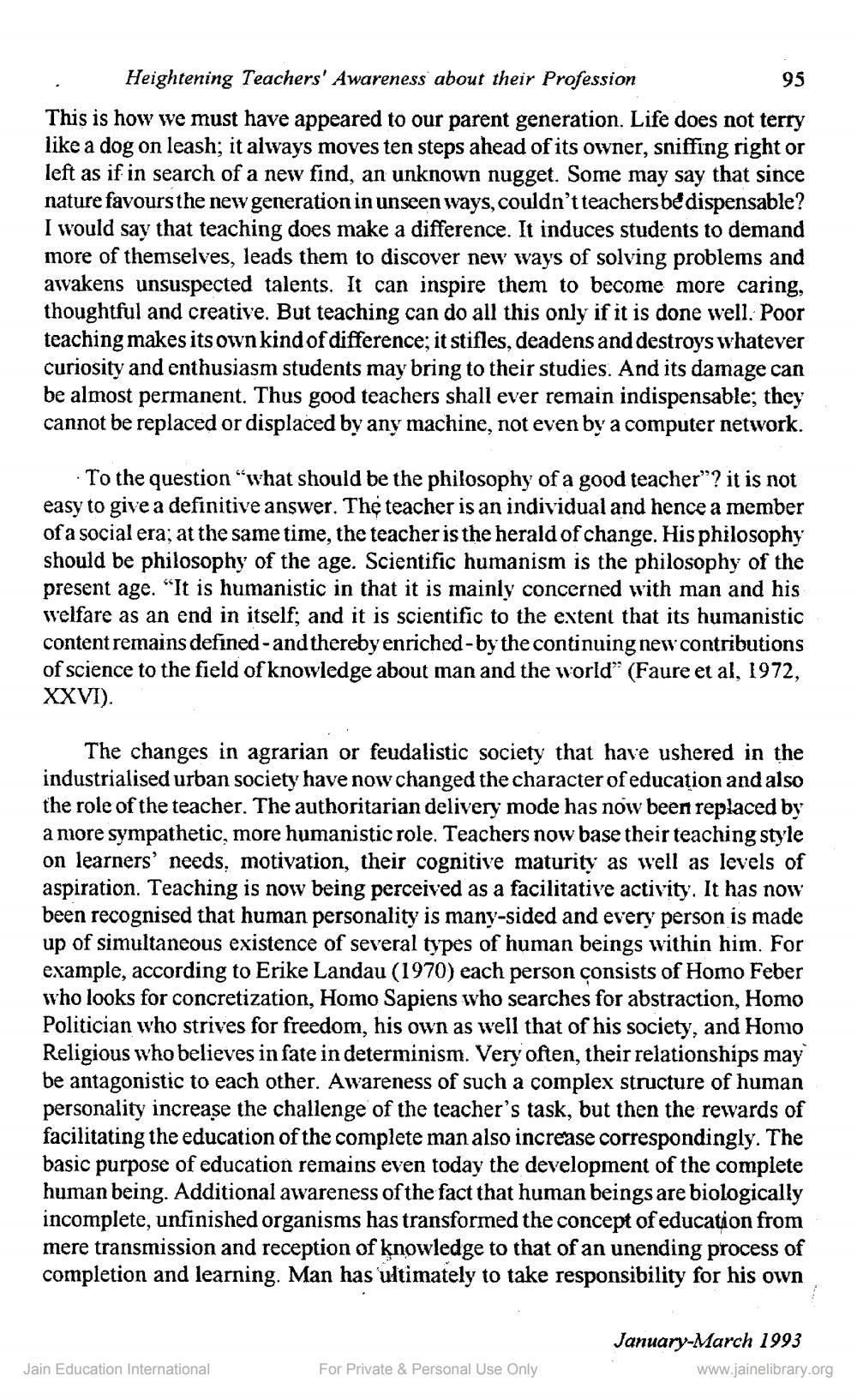________________
95
Heightening Teachers' Awareness about their Profession This is how we must have appeared to our parent generation. Life does not terry like a dog on leash; it always moves ten steps ahead of its owner, sniffing right or left as if in search of a new find, an unknown nugget. Some may say that since nature favoursthe new generation in unseen ways, couldn't teachers be dispensable? I would say that teaching does make a difference. It induces students to demand more of themselves, leads them to discover new ways of solving problems and awakens unsuspected talents. It can inspire them to become more caring, thoughtful and creative. But teaching can do all this only if it is done well. Poor teaching makes its own kind of difference; it stifles, deadens and destroys whatever curiosity and enthusiasm students may bring to their studies. And its damage can be almost permanent. Thus good teachers shall ever remain indispensable; they cannot be replaced or displaced by any machine, not even by a computer network.
To the question "what should be the philosophy of a good teacher"? it is not easy to give a definitive answer. The teacher is an individual and hence a member of a social era, at the same time, the teacher is the herald of change. His philosophy should be philosophy of the age. Scientific humanism is the philosophy of the present age. “It is humanistic in that it is mainly concerned with man and his welfare as an end in itself; and it is scientific to the extent that its humanistic content remains defined-and thereby enriched-by the continuing new contributions of science to the field of knowledge about man and the world” (Faure et al, 1972, XXVI).
The changes in agrarian or feudalistic society that have ushered in the industrialised urban society have now changed the character of education and also the role of the teacher. The authoritarian delivery mode has now been replaced by a more sympathetic, more humanistic role. Teachers now base their teaching style on learners' needs, motivation, their cognitive maturity as well as levels of aspiration. Teaching is now being perceived as a facilitative activity. It has now been recognised that human personality is many-sided and every person is made up of simultaneous existence of several types of human beings within him. For example, according to Erike Landau (1970) each person consists of Homo Feber who looks for concretization, Homo Sapiens who searches for abstraction, Homo Politician who strives for freedom, his own as well that of his society, and Homo Religious who believes in fate in determinism. Very often, their relationships may be antagonistic to each other. Awareness of such a complex structure of human personality increase the challenge of the teacher's task, but then the rewards of facilitating the education of the complete man also increase correspondingly. The basic purpose of education remains even today the development of the complete human being. Additional awareness of the fact that human beings are biologically incomplete, unfinished organisms has transformed the concept of education from mere transmission and reception of Ķnowledge to that of an unending process of completion and learning. Man has ultimately to take responsibility for his own
January-March 1993
www.jainelibrary.org
Jain Education International
For Private & Personal Use Only




